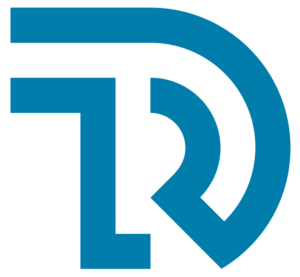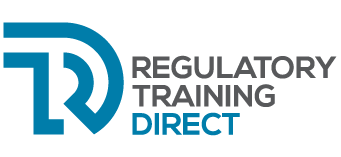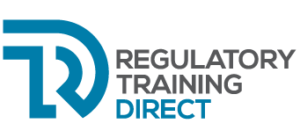current affairs
Issue 230, October 2022
To ask about about sponsoring an issue of this newsletter contact us on info@regulatorytrainingdirect.com
Training news
Cosmetics – Australia – We have fine-tuned our two courses.
Course 1 – Introduction to cosmetic regulations. Includes: cosmetics vs therapeutic products; permitted ingredients; how to search the inventory of chemical substances; how to find mandatory warning statements; the poisons schedule; what is “naturally occurring”; when do you need exemptions, certificates or permits for ingredients, and more.
Course 2 – Australian Cosmetic Labels and permitted claims. Includes: cosmetic vs therapeutic claims; false and misleading claims; “natural” claims, “green” claims and similar; listing ingredients on the label. Label examples and label template provided.
Cosmetics New Zealand course also available.
Stability testing – also recently fine-tuned and includes: how to prepare a stability testing programme or review and monitor results; examples of typical formats. Templates provided.
Read more about these courses at www.regulatorytrainingdirect.com.
Regulatory news
Complementary Medicines and Medical Devices:
Pharmacovigilance Inspection Programme. All sponsors of medicines (including complementary medicines) are strongly advised to complete the TGA’s Pharmacovigilance Inspection Program Risk Assessment Survey. The survey remains open until 18th December. It is mandatory to have a pharmacovigilance programme in place and to notify the TGA of the name of the person responsible for pharmacovigilance. Sponsors that do not complete this survey will be assigned the highest survey risk score. Important links include Pharmacovigilance responsibilities of medicine sponsors, and Pharmacovigilance inspection program: Guidance for medicine sponsors. Source: TGA
Pharmacovigilance training course: our course, conducted face to face by appointment via Zoom, includes a set of 18 forms and procedures that you can use to ensure you comply with your obligations. The course is conducted by Quentin Blades who was involved in the first PV audit the TGA undertook of a sponsor of listed complementary medicines, read more – scroll down AU Complementary Medicines and see course 1.09.
“Traveller’s exemption” for bringing medicines and medical devices into Australia for personal use, and special rules for athletes and sporting teams. TGA information page here.
GMP clearance of overseas manufacturers. Two TGA information pages, one concerning increased target processing timelines, and one describes the approach to GMP clearance during the COVID epidemic.
Melanotan. TGA advises against using products containing “Melanotan”; usually available as pills, creams, injectables or nasal spray and promoted for tanning. The products cannot be legally supplied in Australia. Side effects include darkened skin, increased moles and freckles, nausea, vomiting, loss of appetite, flushing of the face, involuntary stretching and yawning, and spontaneous erections. The UK medicines agency also listed acne, kidney, brain and heart problems. (Melanotan is a different substance from melatonin). Source: TGA
Centre for Medicinal Cannabis Research and Innovation –an information page from NSW Government Health.
Fitbit health and fitness devices. The ACC C has instituted Federal Court proceedings against US-based Fitbit for allegedly making false or misleading representations to consumers about their consumer guarantee rights. Between around May 2020 and February 2022, Fitbit allegedly made representations to consumers claiming they would not be entitled to a refund unless they returned a faulty product within 45 days of purchase or shipment. Fitbit also conveyed to consumers who had been supplied with a faulty device as a replacement for an original faulty device, that they were not entitled to a second replacement device if Fitbit’s two-year ‘limited warranty period’ for the original device had expired. Source: ACCC
Botanical adulterants. Unfortunately, adulteration does exist. The American Botanical Council manages the Botanical Adulterants Prevention Program. They have just released“Best Practices SOP on Disposal / Destruction of Irreparably Defective Articles”. Read more at the HerbalGram website.
Compliance enforcement
Two medicinal cannabis clinics fined $239,760 for alleged unlawful advertising. Australian Institute of Medicinal Cannabis (8 notices, $106,560) and Biologics Research Institute Australia (10 notices, $133,200); promoted the use of unregistered prescription-only cannabis products for serious diseases including cannabis and epilepsy and inferred the products were recommended or approved by a government authority. Source: TGA
Five infringement notices totalling $13,320 to a West Australian registered health practitioner. The notices are for the alleged unlawful advertising of medicinal cannabis products. Products were not approved, were prescription only (cannot be advertised to consumers) and were for serious conditions including cancer and multiple sclerosis. Source: TGA
Imuni fined $13,320 for alleged unlawful advertising of a complementary medicine for a therapeutic use that was not permitted, being for preventing upper respiratory tract infections in infants and children. Source: TGA
Queensland individual fined $5,328 for unlawfully advertising a complementary medicine for treatment of cancer and implying that the medicine was recommended or approved by the Australian government. Source: TGA
Inspire Cosmetology fined $26,640 for importing unapproved cosmetic injectables. Source: TGA
Medical practitioner fined $2.664 for importing an unapproved prescription medicinefrom India for use in COVID patients. The medicine is used overseas for treating HIV. Source: TGA
In the press
Melatonin “gummies” for kids – a last resort? This article suggests caution should be exercised providing melatonin for children. In Australia melatonin is a prescription-only medicine, except when in “.. in modified release tablets containing 2 mg or less of melatonin for monotherapy for the short term treatment of primary insomnia characterised by poor quality of sleep for adults aged 55 or over, in packs containing not more than 30 tablets.” (SUSMP). One study found 26% of “gummies” also contained serotonin, which can sometimes be dangerous. Consumers buying products from overseas over the internet are most likely buying products that are not made to the same standards (pharmaceutical) that apply to complementary medicines manufactured in Australia. Source: SMH.
Animal testing alternatives. Australian start-up Codex Research is developing a machine to replace some animal models. The perfusion bioreactor, or “blood-vessel-in-a-box”, uses human cells to grow tissue-like structures that can be subjected to physical forces like pressure and flow. Source: Australian Broadcasting Corporation.
More on paracetamol. This article discusses changes to the regulation of paracetamol. It is behind half of all self-poisoning attempts in young Australians and causes 50 deaths each year. Paracetamol poisoning can lead to liver damage and the need for a transplant, and even death. Source: Australian Broadcasting Corporation.
Foods:
FSANZ Food Standards News October 2022 available here.
Single use plastics ban. All Australian states have agreed to nationally consistent bans on plastic cutlery, straws, cutlery and cotton buds. As of 1st November the NSW government has banned the sale of single-use plastic straws, stirrers and cutlery; bowls and plates; expanded polystyrene food service items; and plastic cotton buds and microbeads in personal care products. Source: Sydney Morning Herald.
Kava – Call for comment. FSANZ is calling for comment on the 12 month review of the kava standard. Period for comment closes 6 pm 16th November (Canberra time). Source: FSANZ
Proposed amendments to pregnancy warning labels on corrugated cardboard packaging of alcoholic beverages. A technical printing issue which makes the warning difficult to read. Period for comment closes 6 pm 16th November (Canberra time). Source: FSANZ
Bovine lactoferrin in infant formula products. Call for comment on an application to allow bovine lactoferrin in infant formula products. The call for comment period closes at 6pm (Canberra time) 10 November 2022. Source: FSANZ
Amendments to Schedule 18 – processing aids. Includes variations to Chymosin from GM Trichoderma reesei as a processing aid (enzyme) and Serine endopeptidase enzyme from GM Trichoderma reesei. Source: FSANZ
Notifications.
Notification circular 218-22. Serine endopeptidase enzyme from GM Trichoderma reesei) variation , Chymosin from GM Trichoderma reesei as a processing aid (enzyme)) variation, and amendment to standard 1.4.2 Maximum Residue Limits Source: FSANZ
Notification Circular 217-22. Alpha-amylase from GM Bacillus subtilis as a processing aid. Source: FSANZ.
“Greenwashing” and fake online reviews targeted – see below under Cosmetics.
Food Recalls
Murray River Smokehouse Salami (mild and peppered), available for sale at Harris Farm Markets and some other stores – due to microbial (Salmonella) contamination. Source: NSW Government Food Authority.
United Foods Italian Soup Mix – due to the presence of an undeclared allergen (gluten [barley]) resulting from incorrect product label Source: FSANZ
In the press
Obesity – these articles discuss the problems with blaming individuals for “choosing” to be overweight and look at issues with food marketing. Sources: Sydney Morning Herald and Australian Broadcasting Corporation.
Food labelling – interesting comments on our food labelling including “There are more than 30 names for added sugar, there are no restrictions around the amount of sugar or salt that can be added to foods, even foods on the market that say “no added sugar” can be 30 per cent sugar by weight”. Source: Australian Broadcasting Corporation.
Cosmetics, Personal Care and TGA Listed Sunscreens:
“Greenwashing” and fake online reviews targeted. Food and drink packaging and cosmetics are two of the industries being examined. There are growing concerns that some businesses are falsely promoting their environmental or green credentials. Regarding online reviews, the ACCC says “We are looking to identify businesses, review platforms or sectors where there is a pattern of misleading online reviews and testimonials that have the potential to cause significant consumer or small business harm. Both positive and negative reviews and testimonials – including those that are incentivised – can be false or misleading, particularly if they are presented as impartial but are not…”. Source: ACCC
AICIS has published have published 18 draft evaluation statements on 187 industrial chemicals and is looking for comments, open until 7th December. Read more here.
List of the top enquiries to AICIS. Do I need to register?, How much do I pay?, How do I register my products or chemicals?, I forgot my AICIS Business Services username or password, My products are natural – should I register?, What is the Inventory?, I can’t get the CAS number because it is proprietary, I can’t find my chemical on the Inventory or I get too many results, Can you test my product for safety before it goes on sale?, I’ve had a reaction to a product – should I report it?, Can you give me advice on product labelling?. Source: AICIS
How to save AICIS record-keeping checklists as a pdf – including Inventory-listed chemicals, exempted introductions, reported introductions, assessed introductions, and commercial evaluation authorisations. Information page. Source: AICIS.
Chemical added to the Inventory following issue of assessment (early listing) – CAS 249848-66-1, chemical name: 1-Decen-4-yne. Source: FSANZ
Chemicals added to the Inventory 5 years after issue of assessment certificate. (Editor’s note: OMG some very long words in here!) includes – CAS, 136210-28-1, Chemical Name, Aspartic acid, N-[3-[[[3-ethoxy-1-(ethoxycarbonyl)-3-oxopropyl]amino]methyl]-3,5,5-trimethylcyclohexyl]-, 1,4-diethyl ester; CAS, 2097851-43-7, Chemical Name, Carbon black, (3,4-dicarboxyphenyl)-modified, ammonium salt; CAS, 2828426-59-9, Chemical Name, 2-Butenedioic acid (2E)-, polymer with butyl 2-propenoate, ethenylbenzene, 2-hydroxyethyl 2-methyl-2-propenoate, methyl 2-methyl-2-propenoate and 2-methyl-2-propenoic acid; CAS, 2836348-24-2, Chemical Name, Soybean oil, polymer with benzoic acid, 5-isocyanato-1-(isocyanatomethyl)-1,3,3-trimethylcyclohexane, pentaerythritol and phthalic anhydride; CAS, 1262437-73-9, Chemical Name, 2-Propenoic acid, 2-methyl-, polymers with allyl methacrylate, Bu acrylate, Bu methacrylate, 2-hydroxyethyl methacrylate, Me methacrylate, polyethylene glycol hydrogen sulfate 1-[(C11-rich C10-14-branched alkyloxy)methyl]-2-(2-propen-1-yloxy)ethyl ethers ammonium salts and styrene, peroxydisulfuric acid ([(HO)S(O)2]2O2) ammonium salt (1:2)-initiated, compds. with 2-(dimethylamino)ethanol; CAS, 1190928-13-2, Chemical Name, Propanoic acid, 3-hydroxy-2-(hydroxymethyl)-2-methyl-, polymer with dimethyl carbonate, 1,6-hexanediol and 5-isocyanato-1-(isocyanatomethyl)-1,3,3-trimethylcyclohexane, compd. with N,N-diethylethanamine. Source: AICIS
AICIS new inventory and assessment searches go live in November. Includes ‘other names’ for a chemical, an easier way to view the chemical details page, a clearer explanation of any regulatory obligations on each chemical details page. Source: AICIS
****************************************************************
Published by Regulatory Training Direct www.regulatorytrainingdirect.com
Providing regulatory training courses for complementary medicines, GMP, foods, cosmetics. dietary supplements.
This newsletter is sent at no charge. You are welcome to forward this to any colleagues who may find it useful. To receive this newsletter regularly click here
Don’t like these emails? Unsubscribe or Manage Email Subscriptions
Become a sponsor
Showcase your business! Become a Current Affairs sponsor today. To find out more contact us on info@regulatorytrainingdirect.com



